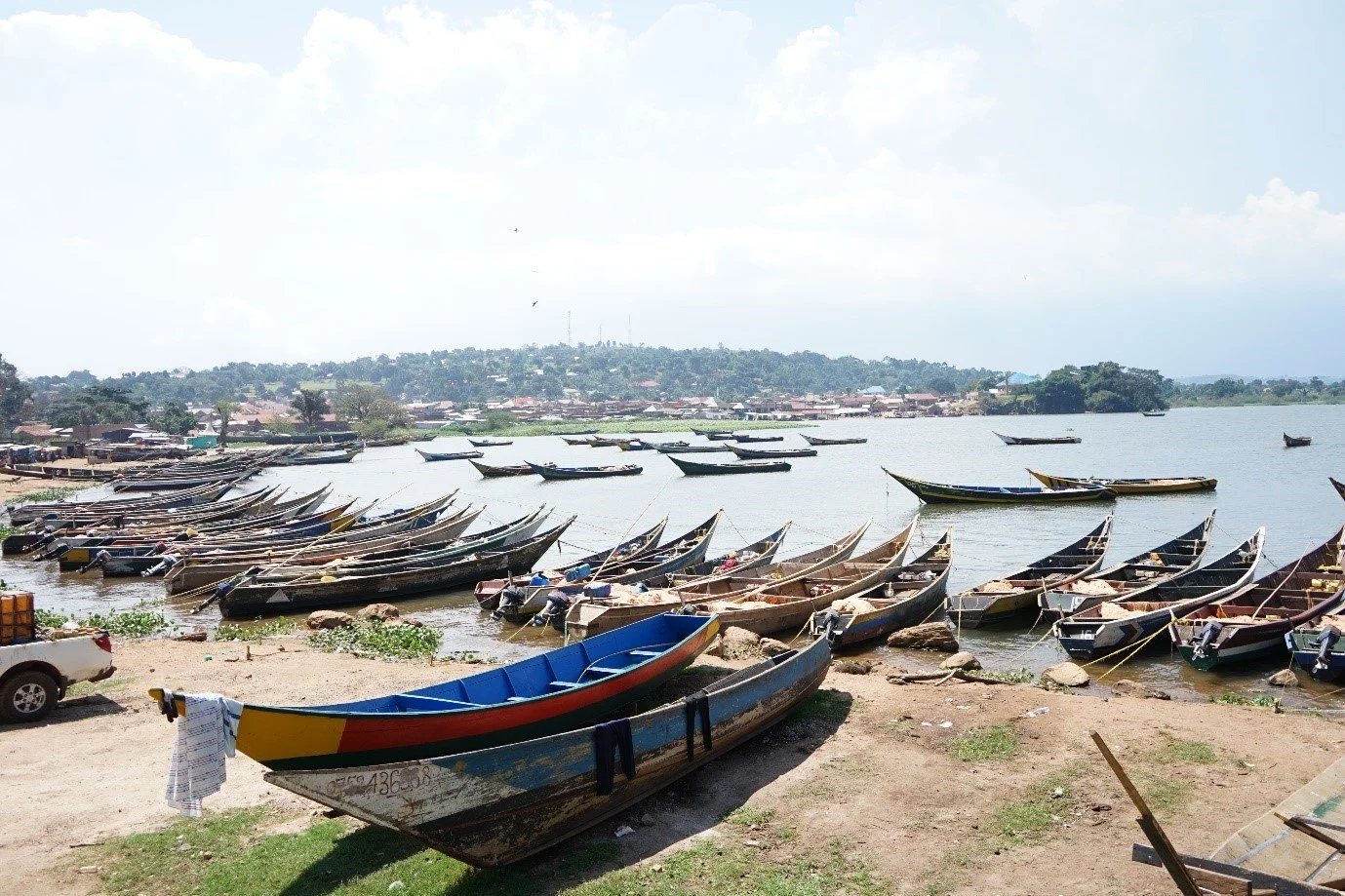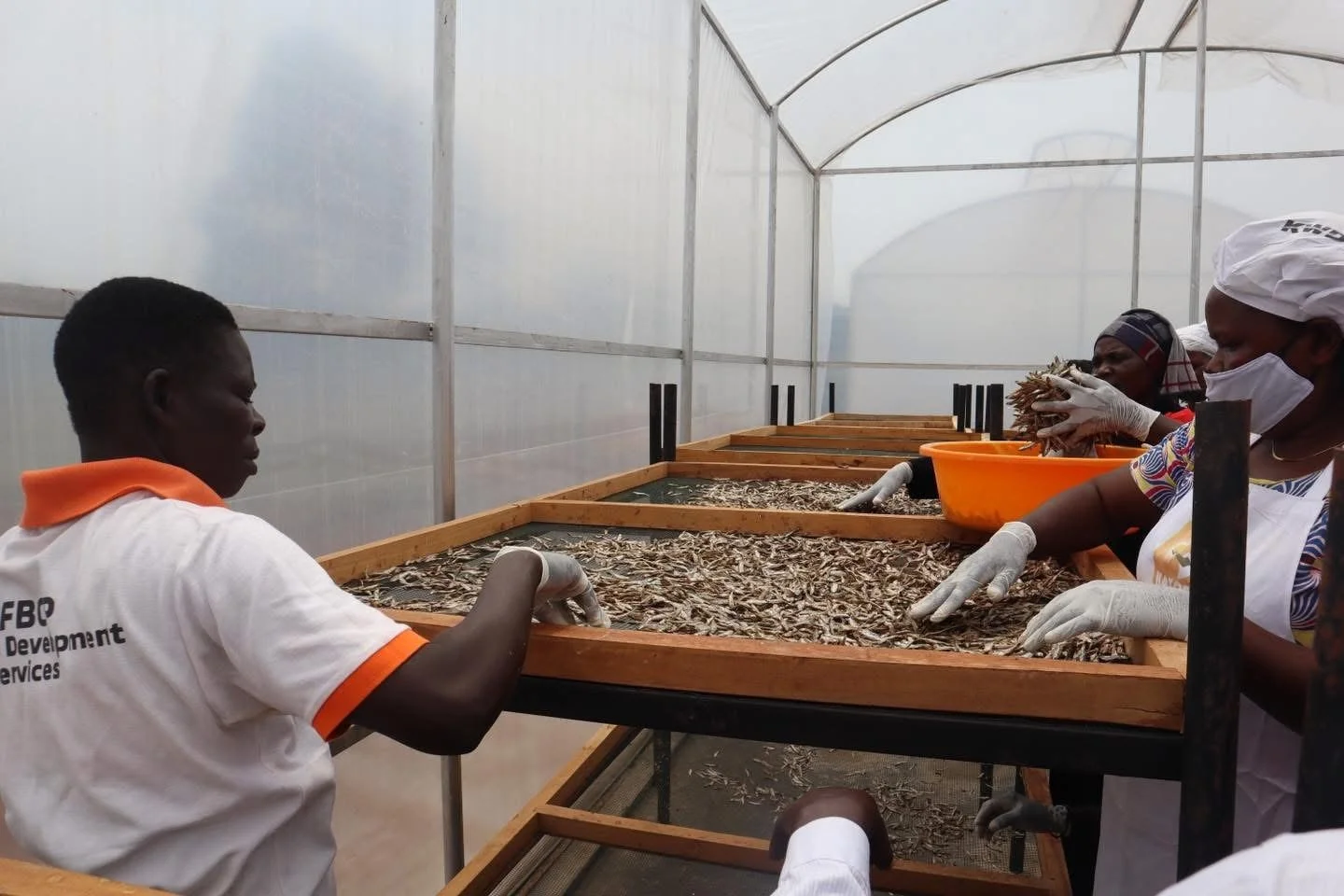🌍 Our Theory of Change: Empowering Rural Women, Transforming Communities
At KWDT, we know that when women have access to resources, skills, and opportunities, they can transform their households and communities. Our Theory of Change demonstrates how investments in women’s empowerment generate measurable outcomes that ripple across generations
The Challenge We Address
Lake Victoria is the main source of livelihood for fishing communities but according to FAO, they represent the largest category of marginalized people in Uganda. Women and youth face multiple barriers: lack of access to clean water and sanitation, limited income opportunities, environmental challenges, and exclusion from decision-making spaces. These communities are remote; majority not connected to the water distribution grid and marginalised from accessing social services from the government and development partners. According to data collected by KWDT (2018 Baseline, 2021 Needs Assessment, 2024 Endline Report), the highest level of education in the communities is primary. Poverty is also widespread due to high dependence on fishing and agriculture, which are vulnerable to weather extremes and environmental degradation. Although agriculture provides an alternative source of income for fishing communities, the lack of land has prevented communities from relying on it for food and nutritional security. In recent decades, significant climatic changes have occurred in the Lake Victoria Basin. This has had significant biophysical, environmental and socio-economic impacts, negatively affecting the region’s economic growth, ecosystem function, livelihoods and overall human development.
Our Approach in Action
KWDT works through over 30 women’s groups with a membership of more than 1,000 women to design and drive local solutions. With donor support, we focus on four priority areas; Economic Empowerment, Water, Sanitation & Hygiene, Formal & Non-Formal Education & Environment Conservation.
The Economic Empowerment program seeks to ensure that women and female youth in groups, gain access to productive resources such as land, fisheries and micro enterprises. In fisheries, this is done through involvement in legal fisheries, improved access to legal fishing equipment like boats engines and nets, advanced processing technologies like solar powered fish dryers & knowledge on legal frameworks. In agroecology, the program increases access to livestock, knowledge, skills, agricultural equipment and processing technologies for value addition. Micro enterprises are encouraged through access to micro credit to reduce the vulnerability of dependency on single income generating activity.
💬 “Before KWDT, my children missed school because I couldn’t afford the fees. When I received a cow, I began selling milk, and today, not only are my children in school, but I also contribute to my savings group.” Grace, KWDT beneficiary in Mukono
Water, Sanitation, and Hygiene (WASH). The program increases access to water and sanitation in households, communities and schools by employing diverse technologies like boreholes, sky hydrants and ecosan toilets. Maintenance is enhanced through skilling of repair committees and strengthening self-governance. Additionally approaches to empty latrines to sustain use is strengthened through improved fecal management used as manure. WASH sensitization, community dialogues, WASH campaigns, use of music dance, drama and sports are key strategies employed to promote behavioral change on WASH. Self-advocacy and lobbying by women to increase access to WASH services is enhanced. Waste management is promoted through resources like waste bins, menstrual buckets, incinerators and capacity building to turn waste into briquettes for home and income generation.
💬 “Fetching water used to take me two hours a day. Now, with the borehole in our community, I use that time to attend to my business to support my children.” Sarah, KWDT member in Kiziru Women’s Group, Mpunge
The Education program ensures inclusive and equitable quality education for all, focusing on primary education; knowledge and skills empowerment for women. The program focuses on improvement of primary school infrastructure through construction of classrooms and WASH facilities in schools. Advocacy to increase funding in education is integrated in the work of women advocacy clubs. The program also builds women’s and female youth’ capacities on leadership, WASH, gender, human rights, governance, advocacy and lobbying and digital literacy to make informed decisions about their lives. The Environment program ensures that development is cognizant of the environment and supports women to engage in practices that conserve land, water resources and forests. The program focuses on environment conservation approaches and the use of diverse renewable energy sources like solar and bio gas.
Why Our Theory of Change Works
Our model is community-led. By building on women’s groups as entry points, we ensure that interventions are inclusive, sustainable, and scaled by the communities themselves. Donor contributions directly translate into measurable impact, clean water accessed, incomes increased, trees planted and voices amplified in governance.



